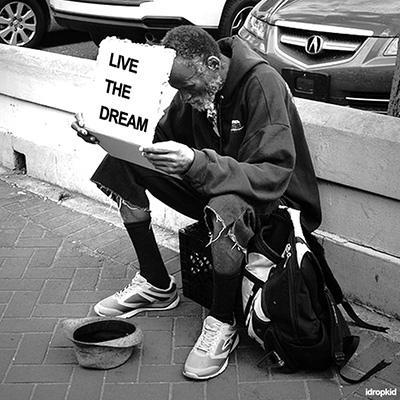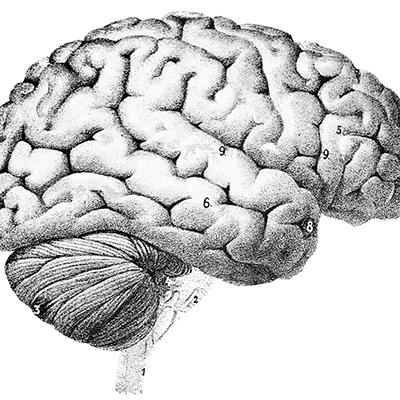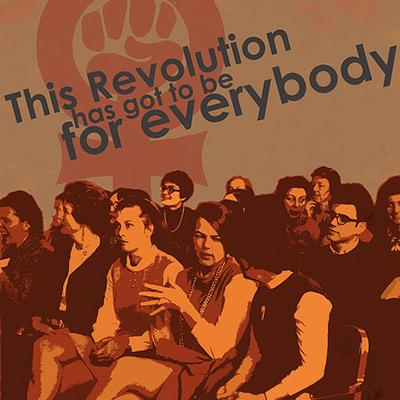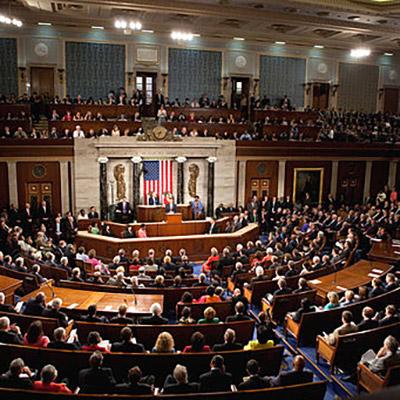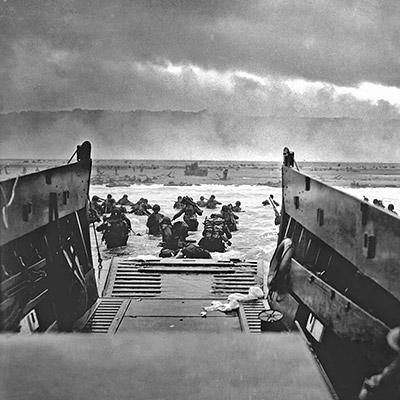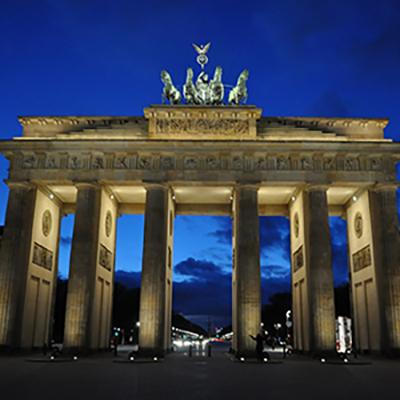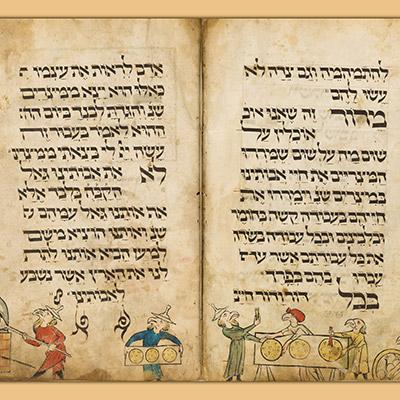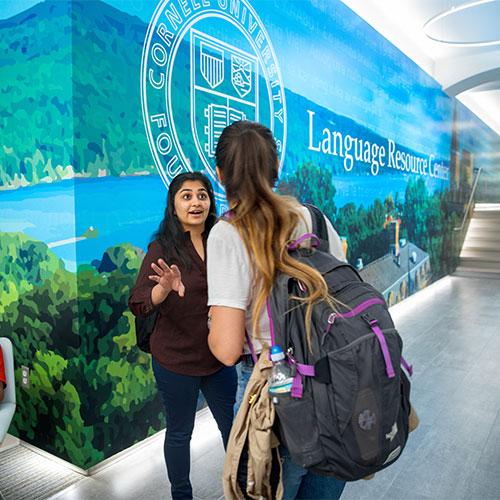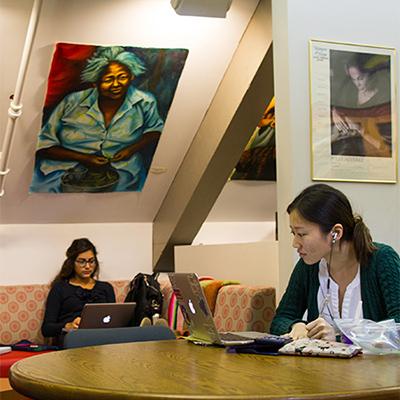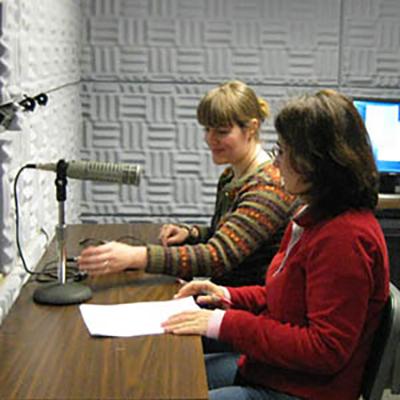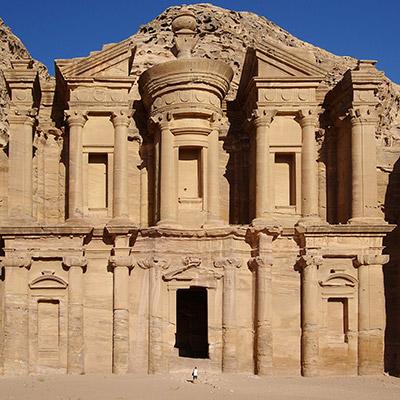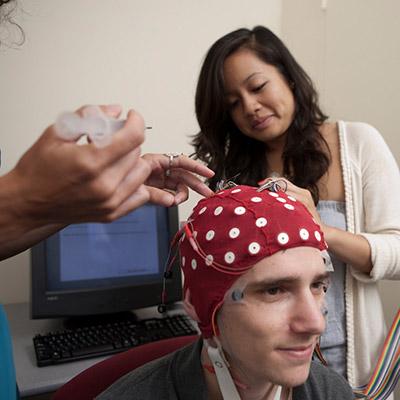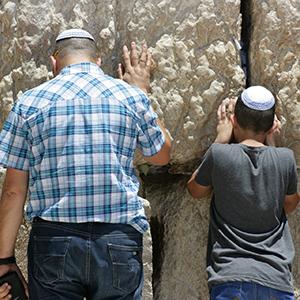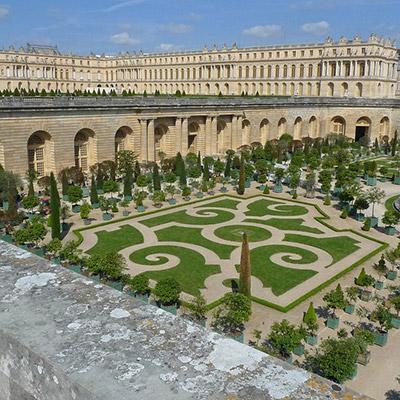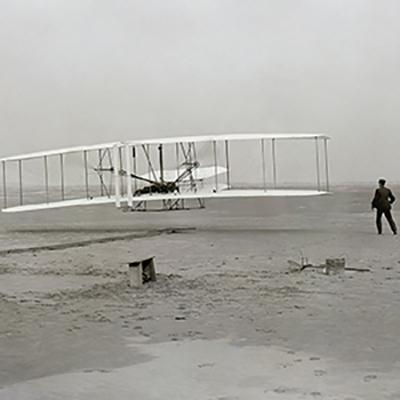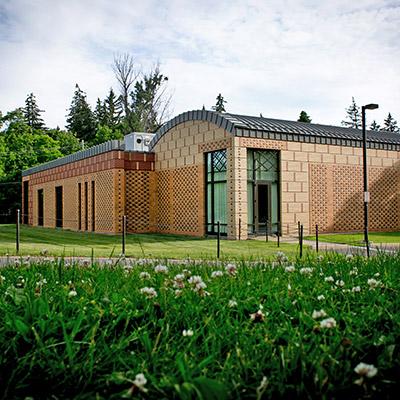
Africana Studies and Research Center
Africana studies is a tradition of intellectual inquiry and study of African peoples. Using a transdisciplinarian approach, Africana scholars document the global migrations and reconstruction of African peoples, as well as patterns of linkages to the African continent (and among the peoples of the African Diaspora). Having perhaps the most international faculty on the Cornell campus, all professors represent the three regions of the African Diaspora: Africa, African America, and African Caribbean - the three foci of Africana Studies. In addition to the faculty, the Africana Studies and Research Center is comprised of nationally and internationally-recognized scholars and educators; socially-conscious intellectuals; and students representing each of Cornell's undergraduate and graduate schools and colleges.
Details
American Studies Program
The Program in American Studies offers an interdisciplinary study of the United States and the many ways to interpret the American experience. The program explores the themes, trends and patterns that characterize the American past and present using multiple perspectives and methodologies. You create your own path through the major, which includes courses in history, politics, popular culture, visual studies, law, literature, race and ethnic studies, etc.
Details
Anthropology
Anthropology is the study of the human condition from the deep past to the emerging present. The field is unified by its commitment to engaged field research that seeks to enhance understanding across boundaries of culture, nation, language, tradition, history and identity. A holistic discipline, anthropology regards economy, politics, culture and society as inseparable elements of humanity’s complex long-term history. A bridge between the humanities, social, and natural sciences, anthropology documents the diversity of our communities and examines the consequences of our commonalities. Because it engages directly with communities around the world, anthropology has a unique capacity to bring the entire human experience to bear on vital questions of sustainability, equality, and mutual understanding that will shape the future of the planet.
Cornell’s Department of Anthropology is one of the most respected programs in the world with a long tradition of innovation and a legacy of leadership in the discipline. The work of its faculty traces the human career from the emergence of the species to the formation of 21st century post-colonialism. Our ethnographic, archaeological and biological research links empirical observations to critical theoretical approaches. Key themes in ongoing research projects and teaching profiles include: medicine and culture; politics, inequality and sovereignty; economy, finance, corporations and law; materiality and aesthetics; gender, personhood and identity; ethics and humanitarianism; humans and animals; colonialism and post-coloniality. Our students and faculty work around the globe from Ithaca, India and Indonesia to the Caribbean and Central America, from Japan, Africa and Nepal to China and the Caucasus, from the circumpolar North to the Global South. The Anthropology Collections, housed in McGraw Hall and used in a range of courses, include over 20,000 ethnographic and archaeological objects whose origins span the globe and represent over 500,000 years of human history.
Details
Asian American Studies Program
At the time of its founding in 1987, the Asian American Studies Program at Cornell University was the first such program in the Ivy League. Today the program has faculty members in the humanities and social sciences in a variety of departments in the College of Arts & Sciences, teaching students from across the University. This cross-college, university-wide position accommodates the extensive teaching and research interests of the Program's faculty and reflects the breadth of the vibrant field of Asian American studies in general. In the classroom, in scholarship, and through campus and community advocacy, the Program is committed to examining the histories and experiences; identities, social and community formations; politics; and contemporary concerns of people of Asian ancestry in the United States and other parts of the Americas.
Details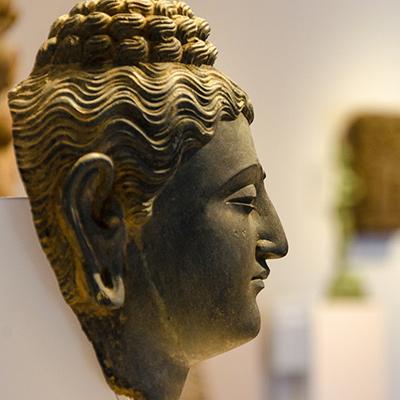
Asian Studies
The Department of Asian Studies serves as the institutional center of Cornell's diverse research and teaching interests, strengths and potentials in Asia. It is the home for instruction in the languages, literatures, religions, cultures, and intellectual histories of Asian societies and is one of the few departments in America that offers instruction in social sciences, the humanities and languages across all three regions of Asia: East Asia (China, Japan and Korea), Southeast Asia (Vietnam, Cambodia, Thailand, Myanmar, The Philippines, Indonesia, Malaysia and Singapore), and South Asia (India, Pakistan, Nepal, Sri Lanka and Bangladesh). The professorial faculty members are a multi-disciplinary group in the humanities who conduct research and teach on topics arranged under our rubrics of "Literature & Linguistics," "Religion," and "Society & Culture," as well as offering more broad courses under the "General Education" heading and more specialized courses such as honors or graduate seminars. Associated faculty throughout the university teach courses about the politics, economics, history, culture and contemporary development of Asian regions. Faculty members at the rank of senior lecturer, lecturer and teaching associate offer instruction in 14 modern Asian languages, and the department also offers instruction in five classical Asian languages (Sanskrit, Pali, Literary Chinese, Literary Japanese and Literary Vietnamese).
The department works with Asian specialists of all disciplines across campus, who collectively comprise the East, South and Southeast Asia area studies programs. Undergraduate students can major in Asian studies or minor in East Asian studies, South Asian studies or Southeast Asian studies. The department is home to two graduate programs: Asian Studies (MA) and Asian Literature, Religion, and Culture (MA/PhD).
Details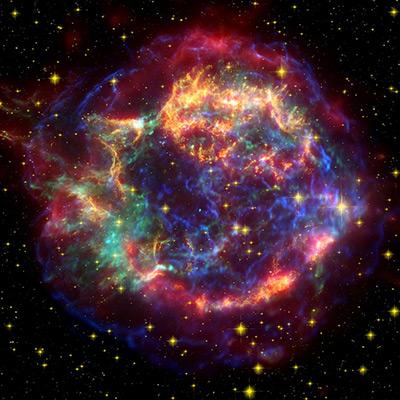
Astronomy
The Department of Astronomy is one of the leading centers for astronomical research in the world. Areas of research include cosmology, exoplanets, planetary science, the interstellar medium, galaxies and stars (including black holes, white dwarfs and neutron stars). The department places strong emphasis on the participation of students in ongoing research projects. It strives to foster an interdisciplinary approach to solving astronomical problems and maintains strong ties with other departments. Many undergraduate and graduate alumni of Cornell astronomy have become leaders in the field.
Cornell astronomers have played major roles in NASA missions to explore the solar system and distant universe. This commitment continues today, with Cornell astronomers leading the Mars Exploration Rovers (MER) mission and playing integral roles in the Cassini mission to Saturn, its moons and environs. Cornell planetary scientists are intimately involved in planning and executing the next generation of spacecraft missions to explore the solar system.
Selected examples of current research topics (among many) include: the study of methane lakes on Titan, determination of the spectral signature of earth-like planets around other worlds, searching for gravitational waves by observing a network of pulsars, the migration of planets in exoplanet systems, the nature and origin of features in Saturn’s rings, and the structure and physical conditions of the earliest galaxies in the Universe.
The Department is home to the Cornell Center for Astrophysics and Planetary Research (CCAPS) and the Carl Sagan Institute (for exoplanet and planetary research).
Details
Carl Sagan Institute
The Carl Sagan Institute (CSI) was founded to find life in the universe. Based on the pioneering work of Carl Sagan at Cornell, our interdisciplinary team is developing the forensic toolkit to find life in the universe, inside the Solar System and outside of it, on planets and moons orbiting other stars.
Details
CDER
Cornell is a leader in the emerging field of Discipline-Based Education Research that explores teaching and learning from the perspective of a particular discipline, such as biology. This interdisciplinary field draws on knowledge and methodologies from social science, psychology, education, and cognitive science research, with the goal of enhancing student learning and instructor teaching.
Details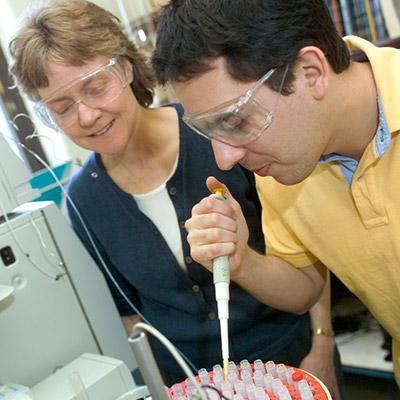
Chemistry and Chemical Biology
The Department of Chemistry and Chemical Biology offers a full range of courses in physical, organic, inorganic, analytical, theoretical, materials, bioorganic, bioinorganic and biophysical chemistry. The department recognizes that the link between teaching and research is a vital one in the continuously evolving field of chemistry, and ensures that students will be provided with the most advanced information and perspectives through its faculty's dual commitment to teaching and to research. In addition to facilities in nuclear magnetic resonance and x-ray crystallography, the department houses The National Biomedical Research Center for AdvanCed ESR Technology (ACERT), which develops and applies methods and theory of modern electron spin resonance.
Details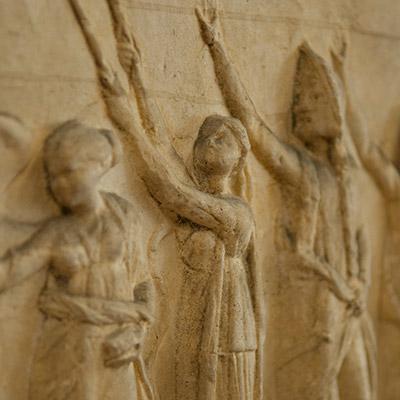
Classics
The Department of Classics at Cornell is one of the oldest and largest in the country. It offers training at all levels in the languages, literature, philosophy, culture, art, archaeology and history of ancient Greece and Rome.
The department promotes first-hand involvement in the ancient world, ranging from productions of ancient plays through participation in Cornell-sponsored archaeological projects. Courses involve direct engagement with material culture using Cornell's collections of ancient coins and of reproductions of sculptures, inscriptions and other ancient objects. Many students participate directly in the discovery and study of ancient material cultures by working in the dendrochronology laboratory on campus, or on material from Cornell-sponsored excavations in the Mediterranean region.
Details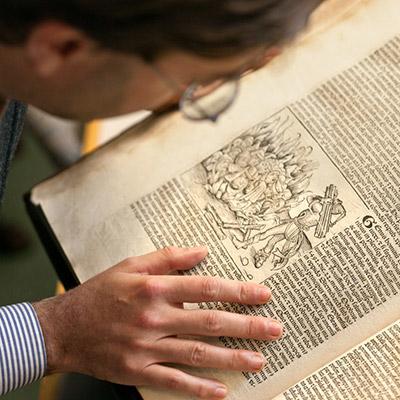
Comparative Literature
The Department of Comparative Literature provides a broad range of courses in European and non-European literatures, offering a full, rich, global view of world literature and cultures. In cooperation with related departments in the humanities, the departmental offerings reflect current interdisciplinary approaches to literary study, such as hermeneutics, semiotics, deconstruction, cultural criticism, Marxism, reception aesthetics, feminism and psychoanalysis.
The department benefits from close ties with Cornell's Society for the Humanities, a center of teaching, research and lectures that provides a unique, historic catalyst for critical and theoretical reflection on campus. The department also has vital connections to the School of Criticism and Theory, a six-week summer program based at Cornell that features leading figures in critical thought, as well as to the Institute for Comparative Modernities (ICM), a Cornell research institute dedicated to reflection on the global and plural nature of modernities.
Details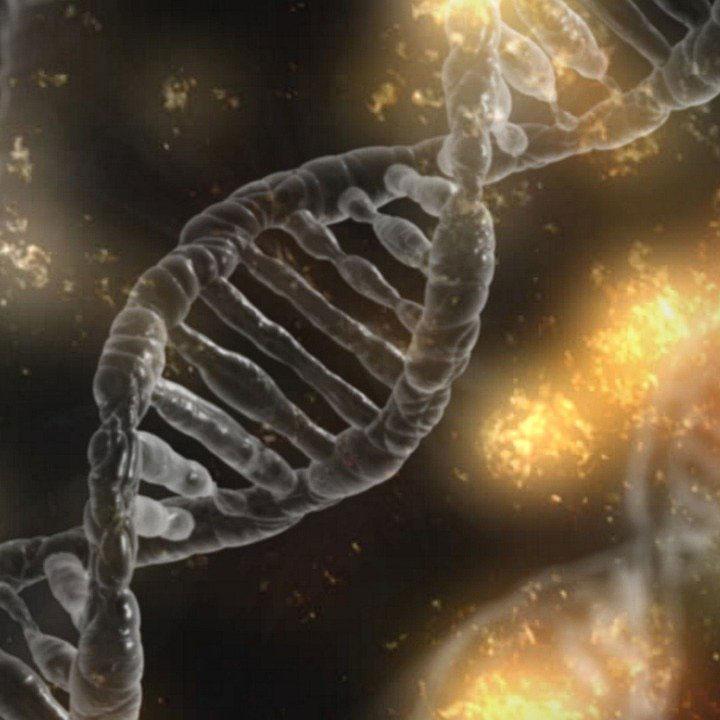
Computational Biology
Students interested in computational biology will learn how to apply computer science, statistics, and mathematics to problems in biology. Computational biology spans a wide range of fields within biology, including genomics/genetics, biophysics, cell biology, biochemistry, and evolution.
As a computational biologist, much of your work would be the analysis of molecular data, such as bio sequences, three-dimensional protein structures, gene expression data or molecular biological networks. You could use this data to address a wide variety of problems, including the identification of disease-causing genes, the reconstruction of the evolutionary histories of species and the unlocking of the complex regulatory codes that turn genes on and off. Computational biologists can also work with non-molecular data, such as clinical or ecological data.
Details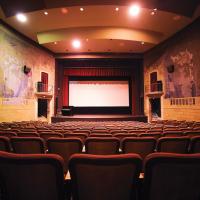
Cornell Cinema
Cornell Cinema has been cited as one of the best campus film exhibition programs in the country, screening close to 200 titles each year, many in conjunction with academic courses. Films are shown five to seven nights a week in the historic Willard Straight Theatre, which is open to the public. Each semester-long schedule features work from the breadth of cinema: silent films with live accompaniment; cult and canonical repertory titles; contemporary Hollywood, documentary, international, art-house, and experimental work; as well as visiting filmmakers, panel discussions, and faculty & graduate student introductions.
Begun in 1970 as a university film society, Cornell Cinema has adapted to address the changing exhibition landscape and to remain vital to campus culture. Throughout its 50-year history the program's primary mission has been educational, with a secondary purpose of providing affordable entertainment for the Cornell & Ithaca communities./p>
Cornell Cinema collaborates with departments and academic programs across campus, many within the College of Arts & Sciences, and has always attracted a diverse range of students studying a broad cross-section of fields throughout the University.
Details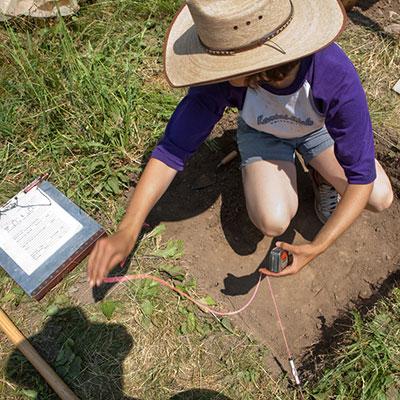
Cornell Institute of Archaeology and Material Studies (CIAMS)
The Archaeology Program was founded in 1967. Cornell is one of the few universities in the United States that offers a separate archaeology major in addition to its graduate program. The program also offers a new post doc in archaeology. Our faculty's specialties range from studies of early peoples to the historic 19th century, within the following departments and programs: American Indian studies, anthropology, classics, earth and atmospheric sciences, historic preservation, history of art and visual studies, landscape architecture, and Near Eastern studies. Archaeology at Cornell is particularly strong in the eastern Mediterranean area, and in the Americas (both pre- and post-Columbian). Some members of the program also are active participants in area studies programs, and faculty and students routinely work with other programs and departments. Faculty members are involved in long-term research projects in Cyprus, Greece, Honduras, Israel, Italy, South Africa, Turkey and in New York State.
Details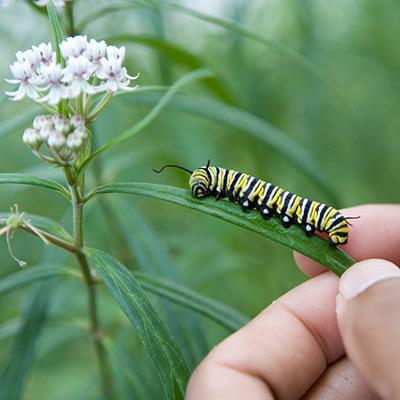
Ecology and Evolutionary Biology
Ecology and evolutionary biology (EEB) is the study of the patterns and processes that structure ecological systems and drive evolutionary change. Understanding the interactions between organisms and their environments is both fascinating and critical for solving environmental problems. As ecologists, we study natural populations, communities and ecosystems and the links among them. As evolutionists we elucidate the past history of natural assemblages and how organisms respond to changing environments. And as organismal biologists we seek to understand how plants, animals and microbes function in relation to their environment. We delight in interacting with students; we integrate undergraduate and graduate education, and foster communication between science and society.
The department makes use of field research sites (from lakes to forests and fields to the ocean coast; locally, nationally and around the world), museum collections (we manage the Cornell Museum of Vertebrates), and modern laboratory facilities (we manage the Cornell Isotope Laboratory and the Evolutionary Genomics Core Facility). Undergraduates in EEB have opportunities to participate in laboratory and field-based research across a broad array of ecological and evolutionary projects.
Details
Environment & Sustainability Program
Cornell's program in Environment and Sustainability (E&S) is guided by a single principle: understanding and resolving environmental problems requires an interdisciplinary approach. This cross-college program supports the Environmental and Sustainability undergraduate major available in both the College of Arts & Sciences and the College of Agriculture & Life Sciences. The major provides environmental science and environmental studies curricula under one umbrella in two Cornell colleges.
E&S offers students breadth and depth in a wide range of courses pertaining to the environment and sustainability. All students complete a set of foundation courses (Core Curriculum), after which students tailor their upper-division courses by selecting one of six concentrations. Enough flexibility remains for students to study abroad, engage in research or pursue other opportunities offered by Cornell.
Details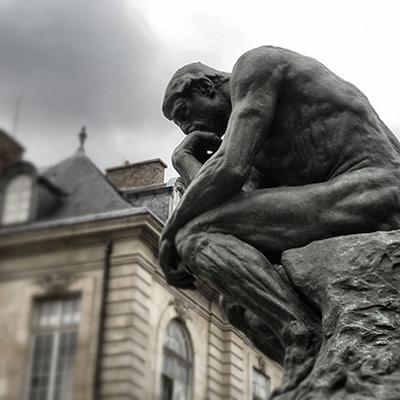
French Studies Program
The French Studies Program at Cornell, with the support of the College of Arts & Sciences, was established thanks to a grant from the Cultural Services of the French Embassy designating Cornell University as a "Centre Interdisciplinaire." The program promotes teaching and research on the French and Francophone worlds and serves as a resource center for teachers of French in upstate New York. Throughout the academic year, the program organizes lectures, colloquia, and other events dealing with various aspects of France and the Francophone countries (art, culture, thought and society). The French Studies Program actively contributes to creative and collective research from all the disciplines at Cornell. In inviting innovative and distinguished speakers from different countries, the program favors an atmosphere of intellectual exchange between undergrads, graduate students and scholars on campus.
Details
German Studies
The Department of German Studies offers students a wide variety of opportunities to explore the language, literature and culture of German-speaking countries. Courses are offered in English translation as well as in German, with subjects ranging from medieval to contemporary literature and include studies of film, visual culture, intellectual history, music, psychology and women's studies. The department also offers opportunities to explore Dutch and Swedish language.
The department is home to New German Critique, a leading journal that is devoted to publishing research on German culture in the 20th and 21st centuries, with particular focus on the history and theory of literature, theatre, media, intellectual history and the graphic arts. Students also have the opportunity as part of Cornell's Study Abroad program to attend the renowned Berlin Consortium for German Studies. The department works closely with the U.S.A.-Interns program to provide qualified students summer internships with German companies and agencies. All Cornell students are eligible to apply for a Certificate in German Language Study, which formally recognizes their study beyond the third semester (GERST 2000) of German language in the Department of German Studies.
Details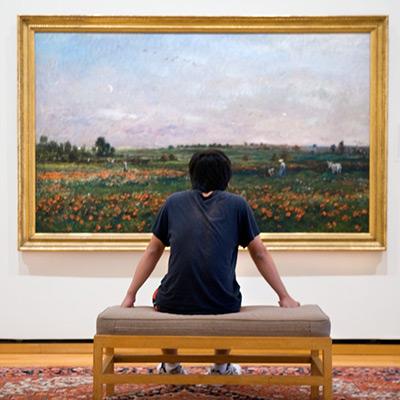
History of Art and Visual Studies
The Department of the History of Art and Visual Studies at Cornell University prepares students to undertake journeys into visual culture through traditional areas of study such as ancient, Medieval and Renaissance art, as well as through the integration of recent fields of theory and research. Students explore the history of cultural interactions as manifested in visual culture both inside and outside the West, from antiquity to present. The department encourages the crossing not only of geographic but also disciplinary borders through exploration of a wide range of fields including architecture, urban planning, critical and post-colonial theory, media studies, the sciences and social history.
Courses are offered in conjunction with the Herbert F. Johnson Museum, such as The Museum and the Object and the Exhibition Seminar. In addition, the History of Art Majors' Society provides undergraduate art history majors or prospective art history majors the opportunity to organize an art exhibition. The group coordinates an exhibition annually at the Herbert F. Johnson Museum of Art. Students curate, work on funding and compose a catalogue. Each year the department sponsors the Visual Culture Colloquium, a research and discussion forum; the Graduate Student Symposium; and The Ruth Woolsey Findley and William Nichols Findley History of Art Lecture Series.
Details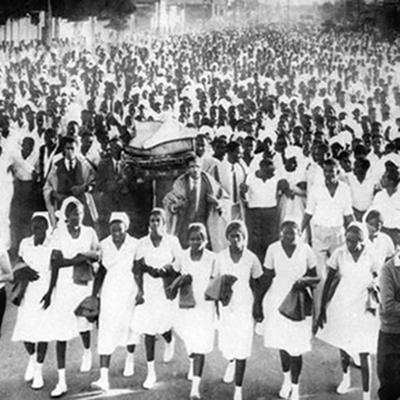
Institute for Comparative Modernities
The Institute for Comparative Modernities (ICM) addresses a key problem in the study of modern culture and society: the transnational history of modernity and its global scope. A broad range of scholarship over the last few decades has contested and complicated the two primary dimensions of the received narrative of modernity: that it arose strictly within the confines of Europe and that its extension outside Europe was a matter of simple diffusion and imitation. What is emerging instead is an account of modernity as a global process in which deep and multifarious interconnections have created complementary cultural formations.
The Institute is dedicated to the study of modernity in such a transnational and comparative perspective. Its primary emphasis will fall on neglected or under-studied articulations of modernity outside of the historically constituted hegemonic spaces of Europe and the United States, but it will also give serious attention to conflicts and complexities within the West. Inadequate understandings of the complex history of modernity have led to simplistic and untenable positions that unknowingly repeat colonialism’s ideological juxtapositions of “us” and “them,” with modernity (and all the positive connotations of historical progress that accrue to the term) all on one side and inscrutable backwardness all on the other. This results in ghettoized scholarship that is damaging to all.
The standard equation of modernity with the West needs to be problematized and opened up to comparative examination. The Institute hopes to galvanize work in this direction by encouraging cross-disciplinary collaborative research that advances a genuinely global analysis of modernity that is also empirically faithful to geographical and historical specificity. By bringing attention to less frequently studied aesthetic and social practices from non-Western and immigrant communities, the Institute hopes to correct accounts of modernity as primarily Western in origin and dynamics.
Details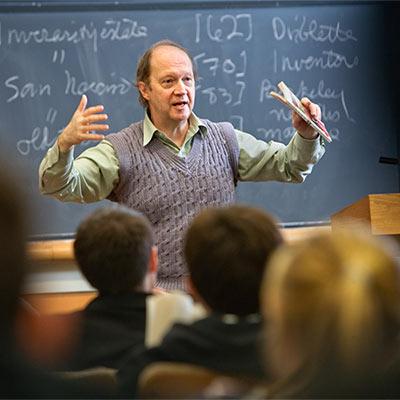
John S. Knight Institute
The John S. Knight Institute for Writing in the Disciplines at Cornell University supports writing seminars and writing intensive courses in a broad spectrum of academic disciplines and at all levels of undergraduate education; it also engages in a variety of outreach activities.
The Knight Institute coordinates the First-Year Writing Seminar Program, which serves the vast majority of first-year students at Cornell. It also has developed advanced-writing initiatives: it coordinates Writing in the Majors, an upper-level program, and supports English 2880/2890: Expository Writing. The Knight Institute is also home to the Writing Workshop, which offers tutorial writing classes and tutoring services. In all, more than thirty-five academic departments and programs offer courses associated with the Knight Institute's programs.
As support for its programs, the Knight Institute offers developmental programs and training. Faculty and graduate students who will teach First-Year Writing Seminars or who will offer courses associated with Writing in the Majors may participate in the Faculty Seminar for Writing Instruction, in Writing 7100: Teaching Writing, or in Writing 7101: Writing in the Majors. Other programs are also available.
Among its outreach efforts the Knight Institute includes the Cornell Consortium for Writing in the Disciplines, an annual June gathering of nine institutions from the United States and abroad. The Knight Institute hosted the Fourth National Writing Across the Curriculum Conference.
Details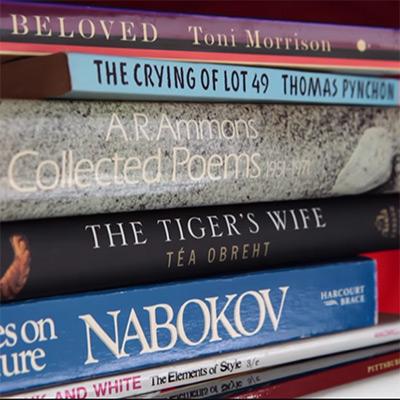
Literatures in English
The Department of Literatures in English embraces new approaches to literary study while maintaining traditional strengths in creative writing and the history of literature in English. In seminars and lecture courses, the department seeks to foster critical thinking, close reading, and lucid writing, while offering instruction in a wide range of genres, periods and traditions, from Medieval and Renaissance literature to contemporary US and global fiction.
The professors of Literatures in English include scholars, theorists, poets, and novelists. In addition to having access to a world-class library system, students can participate in many interdisciplinary opportunities on campus. Lively series of speakers, readings, colloquia and conferences provide a context for sustained learning and debate within the humanities.
Details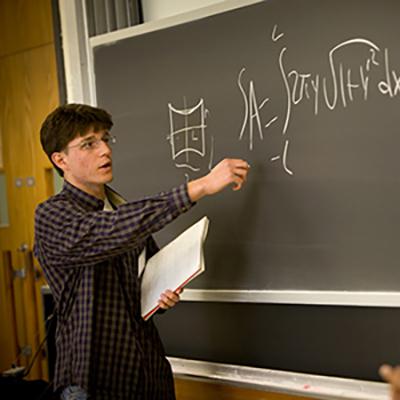
Mathematics
The Department of Mathematics at Cornell University is known throughout the world for its distinguished faculty and stimulating mathematical atmosphere. Approximately 40 tenured and tenure-track faculty represent a broad spectrum of current mathematical research both theoretical and applied. The faculty interests cover the core areas of algebra, topology, geometry and analysis, as well as probability theory, mathematical statistics, dynamical systems, mathematical logic and numerical analysis.
The graduate program combines study and research opportunities for more than 70 graduate students from many different countries. The undergraduate program includes a mathematics minor and a flexible mathematics major with seven different concentrations. In addition, the department offers a wide selection of courses for all types of users of mathematics.
The department also engages in community outreach, providing a variety of programs for local high school students and teachers.
Details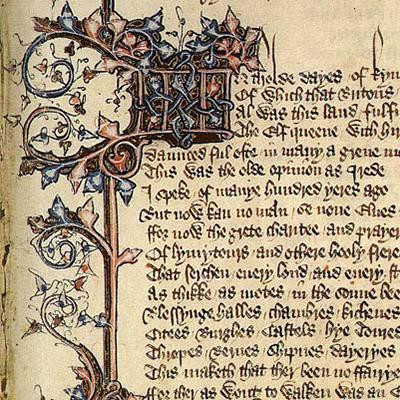
Medieval Studies Program
The Program in Medieval Studies combines the best aspects of an interdisciplinary program with the focused training required for academic careers in a variety of traditional disciplines. The program’s faculty members are drawn from nearly every humanities department at Cornell, offering expertise in disciplines and area studies spanning more than a millennium of languages and cultures—from Old and Middle English literature to Byzantine monuments, from Icelandic sagas to Andalusian architecture, from medieval Latin literature and philosophy to Islamic legal history.
Work in primary archival materials—including Latin and vernacular paleography, textual criticism, and codicology—is well supported by abundant library resources, as well as by faculty dedicated to these fields. Work in gender studies, medieval and modern literary theory, and the post-medieval reception and construction of the “Middle Ages” is also well supported by program faculty and by the full array of other departments and programs at Cornell. Resources for studying Latin and most medieval vernacular languages (including Germanic, Romance, Celtic, Slavonic, Semitic and East Asian languages) are a mainstay of the program. All of these offerings are encompassed within a flexible curriculum tailored to the needs of individual students.
Our diversity of faculty attracts exceptional graduate students from all areas of medieval studies and guides them to dissertations on a broad range of literatures, disciplines, contexts, and approaches. They also enjoy the benefits of carefully mentored training in pedagogical techniques and classroom skills. Students from many other doctoral programs at Cornell are closely involved in the Program in Medieval Studies, and they contribute to a lively and varied community of medievalists that spans Cornell’s College of Arts & Sciences.
Details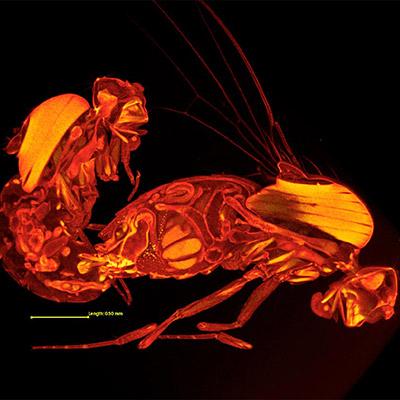
Molecular Biology and Genetics
The Department of Molecular Biology and Genetics engages in cutting-edge research, training and teaching to solve basic questions in the life sciences and to apply biological knowledge to critical medical, agricultural and environmental problems. Our goal is to inspire the next generation of scientists, teachers and communicators by providing research mentorship and classroom instruction in biochemistry, bioinformatics, cell biology, genetics and molecular biology and by initiating and participating in collaborative research across the Cornell campuses.
The explosion of genome-scale data over the last decade offers unprecedented opportunities to understand fundamental principles of biology and to apply biological knowledge to critical medical, agricultural and environmental problems. Every day, faculty in the Department of Molecular Biology and Genetics (MBG) engage in cutting-edge research, training and teaching to advance scientific discovery and answer basic questions in the life sciences. MBG faculty and students continuously deliver the highest standard of research because of their demonstrated excellence in linking genomes to gene and protein function in the context of cells, tissues, organisms, and the environment.
Our goal is to inspire and train the next generation of scientists, teachers and communicators by providing research mentorship and classroom instruction in biochemistry, bioinformatics, cell biology, genetics, molecular biology and related disciplines and by initiating and participating in collaborative research across the Cornell campuses.
Details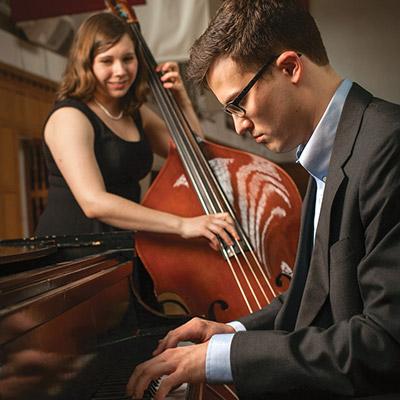
Music
The Department of Music at Cornell provides opportunities for the study, creation, and performance of music under the guidance of a distinguished faculty within the broader framework of a B.A. degree in the College of Arts & Sciences, or as part of a degree in another college. In addition to the music major, a minor in music is offered. The Department of Music is renowned for research and scholarship in music, represented by three graduate programs: musicology (Ph.D.), composition (D.M.A), and critical keyboard studies (D.M.A).
Our recently redesigned music major enables undergraduate students to explore music covering diverse historical periods, styles and geographical areas. Students can study subjects ranging from 18th-century and 21st-century performance practices to Asian music, jazz, rock and composition. Hundreds of students participate in large performing ensembles such as orchestras, wind ensembles, gamelan, jazz ensembles, the Glee Club and Chorus, as well as chamber ensembles of all kinds. Our world-class facilities include the Sidney Cox Library, Bailey Performance Hall and the Electroacoustic Music Center.
Details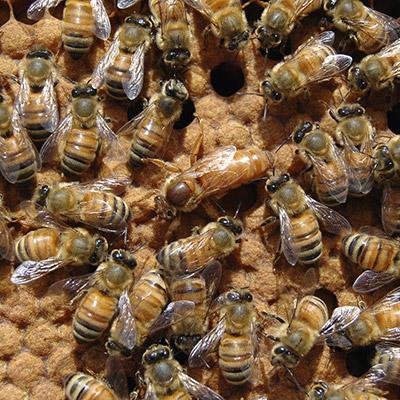
Neurobiology and Behavior
The Department of Neurobiology and Behavior is dedicated to exploring, teaching and understanding the neural underpinnings and evolutionary forces that shape animal behavior. The interests of our faculty and students span all levels of organization, from single neurons to complex circuits to whole organisms and societies thereof, and include the impact of hormones and stress on learning and memory, the emergent properties that define behavioral states and govern complex tasks, and the evolution of cooperation, conflict and communication from solitary to highly social organisms.
The department offers a wide range of research opportunities in cellular and molecular neuroscience, systems neuroscience, computational neuroscience, neuroethology and endocrinology, behavioral, sensory and cognitive ecology, sociobiology, sexual selection, chemical ecology and the evolution of species boundaries. Our teaching mission is to integrate most of these themes into two flagship courses, BioNB 2210 (Introduction to Behavior) and BioNB 2220 (Introduction to Neuroscience), and to explore them in greater depth in our upper level courses. These traditional strengths in research and teaching, combined with the recent hires of exciting new faculty members, have positioned NBB as a leader in the emerging science of the brain.
Details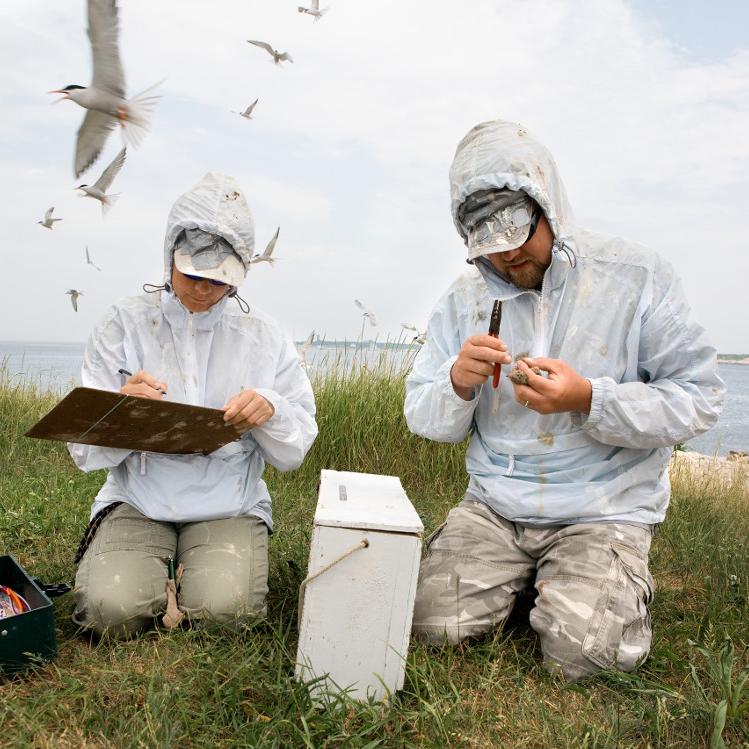
Office of Undergraduate Biology
The Office of Undergraduate Biology provides comprehensive, academic, career, and research advising to current and prospective biological sciences majors and minors, as well as alumni and faculty. Our primary mission is to serve the diverse needs of our majors as they navigate the curriculum and achieve their academic and career aspirations.
Bio by the Numbers
- 1300 majors from the College of Arts and Sciences (CAS) and the College of Agriculture and Life Sciences (CALS)
- 14 concentrations and over 380 courses
- Over 300 faculty members teach in our curriculum and engage in research with our students
- 70% of majors participate in undergraduate research before graduation
- Each semester, over 500 students earn academic credit for conducting research
- The Office of Undergraduate Biology is staffed with advising professionals who help students plan for and reach their academic and career goals
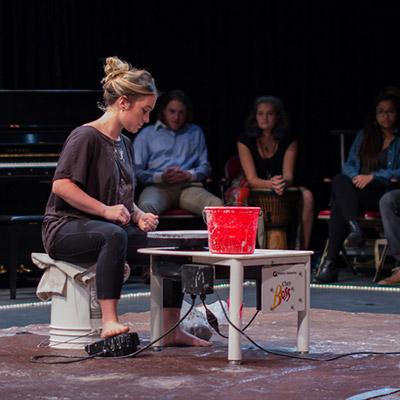
Performing and Media Arts
The Department of Performing and Media Arts follows a liberal arts program that emphasizes creative thought, intellectual growth, and performance skills. The faculty and staff are accomplished professionals who embrace a philosophy of training and mentoring within the context of a liberal arts education. Faculty teach courses and train students across the following areas: theatre, performance studies, acting and directing, design (lighting, sound, scene, costume), stagecraft, cinema and media studies, film and media production (analog and digital), dance, spoken word, voice and movement, and other areas in performing and media arts.
The department is housed in Cornell’s elegant Schwartz Center, which boasts three theatre performance spaces, a dance theatre and studios, film editing and production suites, film forum, classrooms, and scenery and costume shops. Opportunities abound for students to present their work through the department’s Student Laboratory Theatre Company, Dance Program and student film screenings, as well as via numerous student organizations on campus. Students can also take advantage of Cornell Cinema, which has been cited as one of the best campus film exhibition programs in the country. Cornell Cinema includes a media study library with extensive reference materials, publications, a film collection, and frequent workshops and presentations by guest artists and critics.
Details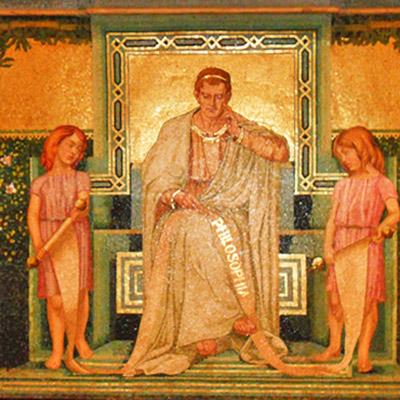
Philosophy
Founded in 1891, Cornell's Sage School of Philosophy offers students the excitement that comes from understanding intellectual problems and the satisfaction involved in finding theoretical and applied solutions. Students become familiar with classic texts and theories in the history of thought while also developing analytical skills that are valuable in academic, professional and everyday life. Small classes and a collaborative, communal atmosphere are among the distinguishing features of the Sage School. In addition to coursework, extracurricular activities and events offer abundant opportunity for philosophical exchange within Cornell and the wider philosophical community. The university's extensive library system, with its nearly five million volumes, provides excellent coverage of scholarly works in all branches of philosophy—historical, analytical, phenomenological, Continental and comparative.
The faculty of the Sage School edits The Philosophical Review, also founded in 1891, and generally regarded as the best journal in philosophy. Logos: The Undergraduate Journal of Philosophy at Cornell is run by a group of undergraduate majors who work with an advisory board of professionals to solicit papers, award cash prizes for the best submissions, provide critical comments on drafts, publish an annual volume, and organize additional colloquia and undergraduate conferences.
Details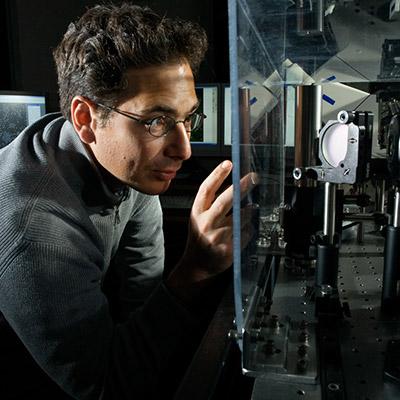
Physics
Physics forms the intellectual core of the physical sciences. It examines the world through an analytical lens: providing insight into the fundamental building blocks of nature, the emergent behavior of complex systems, and the laws which govern the physical world. In addition to offering an exciting array of courses, Cornell's Department of Physics features world-class research in a wide variety of specializations, from biophysics and nanoscience to high energy physics, accelerator science and string theory. Undergraduates in physics have the opportunity to conduct research in these areas, as well as participate in teaching and community outreach activities.
Details
Rural Humanities
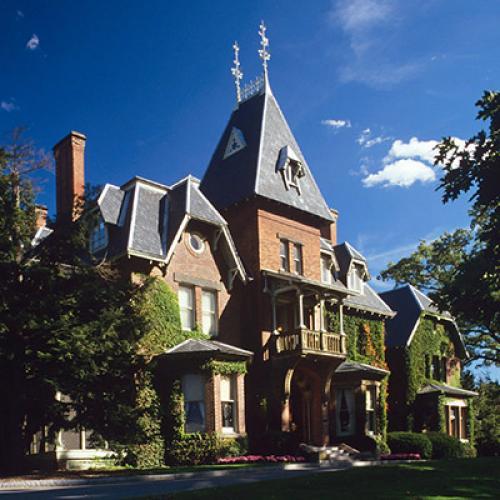
School of Criticism and Theory
Since its inception in 1976, the School of Criticism and Theory has been devoted to intensive intellectual inquiry and the vigorous exchange of ideas, cultivating a space where courageous discussion and innovative academic exploration can thrive.
Details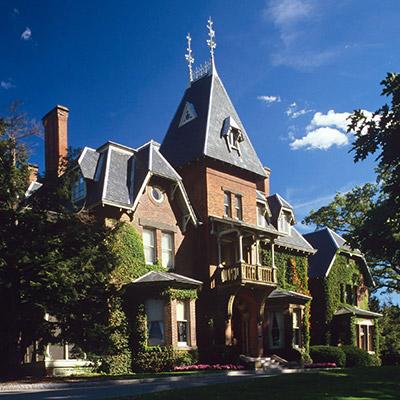
Society for the Humanities
Cornell's Society for the Humanities was established in 1966 as one of the first humanities institutes in North America. Located in the historic home of Cornell's first president, Andrew Dickson White, the Society brings distinguished Visiting Fellows and Cornell Faculty and Graduate Student Fellows together each year to pursue research on a broadly inter-disciplinary focal theme. In addition to participating in our legendary Wednesday Fellows seminar, Fellows offer one experimental, innovative seminar on their research topic. The Society's presence at Cornell has fostered path-breaking interdisciplinary dialogue and theoretical reflection on the humanities at large with our internationally recognized Fellows. The Society is proud to sponsor numerous internal grants, workshops and funding opportunities for Cornell faculty and graduate students in the Humanities, as well as hosting over 100 annual lectures, workshops, colloquia and conferences organized by Cornell's distinguished humanities faculty.
DetailsNo matching items.
We pride ourselves on our offerings, but your curiosity has not been met here yet. Clear all filters.
